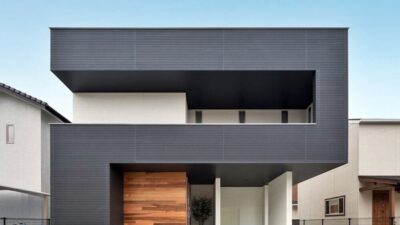Embarking on a career as an architect in Massachusetts requires a blend of academic achievement, hands-on experience, and rigorous examination. This article delves into the multifaceted process of obtaining an architecture license in this state, outlining the educational prerequisites, experience requirements, and necessary examinations.
Whether you are starting your journey in the field of architecture or seeking to solidify your professional status in Massachusetts, this guide provides valuable insights into each step of the process.
Massachusetts Architecture Industry Licensing
To secure an architecture license in Massachusetts, the journey involves several critical steps:
- Educational Foundation: Obtain a professional degree in architecture from a program accredited by the National Architectural Accrediting Board (NAAB). Such programs, typically spanning five years, offer comprehensive coursework in architectural design, construction technology, architectural history, and theoretical foundation;
- Practical Experience: Accumulate a minimum of three years of practical experience under the guidance of a licensed architect. The Massachusetts Board of Registration of Architects mandates this period to foster hands-on skills across various architectural projects;
- Examination: Successfully complete the Architect Registration Examination (ARE), a thorough assessment encompassing site planning, building systems, and structural design. This exam is divided into six sections, all of which must be passed to qualify for licensure;
- Licensure Application: Following the successful completion of the ARE, submit an application for licensure to the Massachusetts Board of Registration of Architects. This application must include academic transcripts, documented practical experience, and ARE scores;
- License Issuance: Upon approval of your application, you will be granted a license to practice architecture in Massachusetts.
These steps ensure that every licensed architect in Massachusetts possesses the necessary knowledge and skills to create safe and efficient buildings.
Alternate Paths and Continuing Requirements
Massachusetts offers several pathways and ongoing requirements for architects:
- Alternate Pathways: For architects licensed in another state, reciprocity is available through the National Council of Architecture Registration Board (NCARB) certificate, bypassing the standard examination route;
- License Renewal: Architect licenses in Massachusetts require annual renewal. This process includes completing 12 hours of continuing education annually and paying the applicable renewal fee.
Essential Skills and Expertise for Licensed Architects in Massachusetts
In the dynamic field of architecture in Massachusetts, professionals must cultivate a diverse set of skills and expertise to thrive. These range from technical knowledge to interpersonal abilities:
- Mastery in Architectural Concepts: A deep-rooted understanding of various construction materials, methodologies, and structural frameworks is crucial. Architects must be adept at selecting the right materials and employing effective construction techniques to bring designs to life while ensuring structural integrity;
- Proficiency in Digital Design Tools: Expertise in the realm of digital design, particularly in computer-aided design (CAD) software, is non-negotiable. This proficiency allows for the creation of precise and detailed architectural plans and models, essential for accurate project visualization and execution;
- In-Depth Understanding of Local Regulations: A thorough grasp of the specific building codes and regulatory guidelines prevalent in Massachusetts is vital. This knowledge ensures that all designs adhere to the necessary legal standards, thus avoiding potential legal and safety issues;
- Communication and Project Oversight Abilities: Exceptional communication skills are paramount for architects. The ability to articulate design concepts clearly to clients, collaborate effectively with contractors, and manage project stakeholders is essential. Additionally, architects must possess strong project management skills, ensuring that projects are completed within the allocated time frame and budget;
- Dedication to Eco-Friendly Design: A commitment to sustainable design practices is increasingly important. Architects should be advocates for environmentally responsible design, integrating green building principles and practices into their work. This commitment not only supports environmental sustainability but also responds to the growing demand for eco-friendly structures.
By honing these skills and competencies, architects in Massachusetts position themselves at the forefront of the industry, ready to meet the diverse demands of modern architectural projects while contributing to the development of sustainable and livable communities.
Local Salary Expectations
The architectural profession in Massachusetts offers a promising financial outlook. According to the Bureau of Labor Statistics, the median annual wage for licensed architects in the state is approximately $88,860. However, it’s important to note that salaries can vary widely based on several key factors:
- Experience Level: Entry-level architects may start with lower salaries, but as they gain experience and demonstrate their skill and proficiency, their earning potential increases significantly;
- Area of Specialization: Architects who specialize in high-demand fields such as sustainable design, digital architecture, or healthcare facilities often command higher salaries due to the specialized knowledge and skills required in these areas;
- Size and Prestige of the Employing Firm: Larger and more prestigious architectural firms typically offer higher compensation compared to smaller practices. The reputation and project portfolio of a firm can greatly influence the salary scales;
- Geographical Location: Salaries for architects also vary within Massachusetts, with urban areas like Boston typically offering higher wages compared to rural regions;
- Additional Certifications and Skills: Architects with additional certifications, such as LEED accreditation for sustainable building practices, or advanced skills in software like BIM (Building Information Modeling), can negotiate higher salaries.
Career Advancement Opportunities
Career advancement for architects in Massachusetts is a dynamic process that hinges on continuous learning and specialization. Key avenues for advancement include:
Specialization Areas:
- Healthcare Architecture: Specializing in designing hospitals and healthcare facilities, which requires an understanding of complex functional and regulatory requirements;
- Sustainable Design: Focus on eco-friendly and energy-efficient buildings, a field that’s rapidly growing in response to environmental concerns;
- Urban Planning and Development: Involves large-scale planning projects, balancing community needs, environmental impact, and aesthetic considerations.
Professional Development:
- Workshops and Seminars: Engaging in industry-specific workshops enhances skills in new technologies and design methodologies;
- Conferences: Attending national and international architectural conferences can provide insights into emerging trends and networking opportunities;
- Advanced Training Programs: Pursuing advanced degrees or certifications in niche areas can lead to higher positions within firms or open up opportunities for independent consultancy.
Licensure Beyond Massachusetts
While this guide concentrates on Massachusetts, pursuing architectural licensure in other states like New York can significantly broaden an architect’s professional horizon. Each state has its own set of requirements, which might share similarities but also present unique aspects:
- Examination and Registration: Similar to Massachusetts, New York requires passing the Architect Registration Examination (ARE) and registering with the state’s architectural board;
- Reciprocity Agreements: For architects already licensed in Massachusetts, many states offer reciprocity, streamlining the licensure process in the new state;
- Continuing Education: New York, like Massachusetts, requires ongoing education for license renewal, emphasizing the architect’s commitment to staying current with industry developments;
- Broadened Job Market: Being licensed in multiple states opens doors to a wider range of projects and clients, especially for firms operating nationally or for architects interested in diverse project types across different regions.
This multi-state licensure not only enhances professional versatility but also ensures adaptability to various regulatory environments, amplifying career opportunities for architects.
Conclusion
Securing an architecture license in Massachusetts is a comprehensive process that combines educational rigor, practical training, and examination success. This journey equips aspiring architects with the skills, knowledge, and credentials necessary for a successful career.
From educational foundations to career advancement, each step plays a crucial role in shaping a competent, versatile, and forward-thinking architectural professional. As we explore architectural licensure in various states, such as New York, the commitment to excellence and continuous learning remains a constant driving force in the architecture industry.











